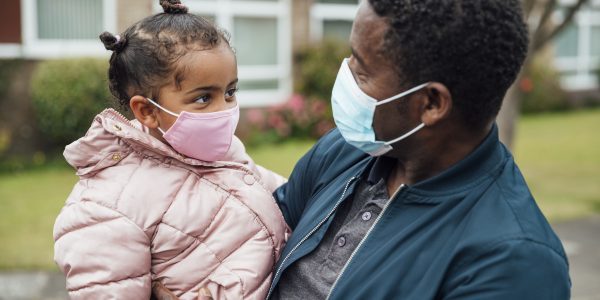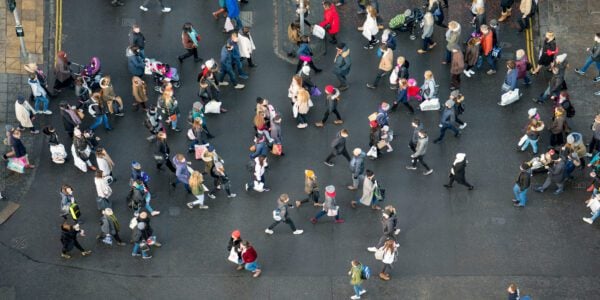
13/07/22
4 min read
Britain’s toxic combination of low growth and high inequality has left it trailing behind the comparable economies of Australia, Canada, France, Germany and the Netherlands, with disastrous consequences for low- and middle-income households.
But a new economic strategy aiming to address this failure needs to be serious about the scale of change required, and go far beyond promises of tax cuts, according to a major new report from the Resolution Foundation and Centre for Economic Performance at the LSE.
Stagnation nation – the interim report of The Economy 2030 Inquiry, funded by the Nuffield Foundation – brings together the findings of the 30 reports published so far for the Inquiry to set out the scale of the economic challenge Britain faces in the decade ahead, and how a bold, new economic strategy could deliver a fairer and more prosperous economy.
The report notes that the country is approaching a decisive decade of economic change in the 2020s against a backdrop of low growth and high inequality.
Having almost caught up with the economies of France and Germany from the 1990s to the mid-2000s, the UK’s productivity gap with them has almost tripled since 2008 from 6% to 16% – equivalent to an extra £3,700 in lost output per person.
And despite claims that GDP doesn’t matter, the report shows just how visible low growth has been in people’s pay packets. Before the financial crisis, wages grew by an average of 33% a decade. Since then, pay growth has fallen below zero, and eight million young workers have never experienced a period of sustained rising real wages.
Britain’s slow growth over the past 15 years has combined with the high inequality over the past four decades – posing a toxic combination for low- and middle-income households.
While the top 10% of households in Britain are richer than those in many other European countries, middle-income British households are not: they are 9% poorer than their counterparts in France, while the poorest fifth of households in Britain are now over 20% poorer than their French and German equivalents.
The report warns that the UK is currently not on track to turn this around because, despite the country’s huge strengths, it is not serious about the task of doing so. That’s because policy makers are:
- Not serious about the nature of our economy. Britain is a services superpower – the second biggest exporter of services in the world – and is about far more than financial services, with specialisms in professional services, education and intellectual property. These strengths should be at the heart of a new economic strategy, but are rarely celebrated by politicians.
- Not serious about firms investing. Despite firms’ loud and regular complaints about skill shortages, their own investment in human capital is falling short. The average number of days an employee spends in training each year has fallen by almost 20% between 2011 and 2017.
- Not serious about levelling up. 69% of the UK population live in cities and their hinterlands, and yet all of England’s major cities outside London have productivity levels below the national average. The scale of change required to turn this around is far bigger than is currently being considered.
- Not serious about fairness. Half of all shift workers in Britain receive less than a week’s notice of their work schedule, an intolerable situation in a modern advanced economy. Poor households have experienced no income growth in the 15 years running up to the pandemic and the basic level of benefits is now only 13% of average pay – the lowest level on record.
- Not serious about taxes. Despite promises of huge tax cuts, slow growth and an ageing society mean higher taxes than we’re used to. Both main parties have increased National Insurance recently, despite it falling narrowly on younger workers at a time of flatlining wages. In contrast, wealth has risen from three to almost eight times GDP since the 1980s, while wealth taxes have not risen at all as a share of GDP.
Stagnation nation says that just as the relative decline of UK is underestimated by policy makers, so too are the gains from turning things around.
Comparing the UK, not to the world’s most productive or equal countries, but to a group of five comparable nations – Australia, Canada, France, Germany and the Netherlands – the report illustrates the scale of Britain’s challenges, but also catch-up potential. If the UK had the average income and inequality levels of these countries, typical household incomes in Britain would be a third higher – equivalent to £8,800 per household – and those of the poorest households 40% greater.
Having set out the goals and framework for a new economic strategy for Britain in the 2020s, the next phase of The Economy 2030 Inquiry will focus on the policies that would deliver greater and fairer prosperity across Britain – a task that all the main political parties, and contenders to lead them – need to focus on.
Torsten Bell, Chief Executive of the Resolution Foundation, said:
“Britain is a rich country, with huge economic and cultural strengths. But those strengths are not being built on with the recent record of low growth leaving Britain trailing behind its peers. This forms a toxic combination with the UK’s high inequality, leaving low- and middle-income households far poorer than their counterparts in similar countries.
“We must turn this around, but we are not on track to do so. We underestimate the scale of our relative decline and are far from serious about the nature of our economy or the scale of change required to make a difference. This has to change.”
Stephen Machin, Director of the Centre for Economic Performance at the LSE, said:
“High levels of inequality, real wage stagnation and flatlining productivity have characterised the evolution of the UK economy for a long time. The Economy 2030 Inquiry has presented new evidence on this and on how and why the economy has got into this state. The Inquiry argues that it is vital to design and implement better economic policy to get us out of this and enable a shift to a place where inclusive growth is achievable.”
Alex Beer, Welfare Programme Head at the Nuffield FoundationAs a result of a lack of meaningful improvements to living standards since the mid-2000s and high levels of income inequality, lower-income households in Britain have little resilience in the face of the cost of living crisis. People are worried about getting by, cuts to public services and a lack of quality jobs.
“To improve people’s lives, government must reconsider and reframe their approach to the UK economy. By identifying and responding to the economic challenges ahead, and by putting the consideration of people, places and firms at its heart, the Economy 2030 Inquiry has the potential to help make this happen.”






















































